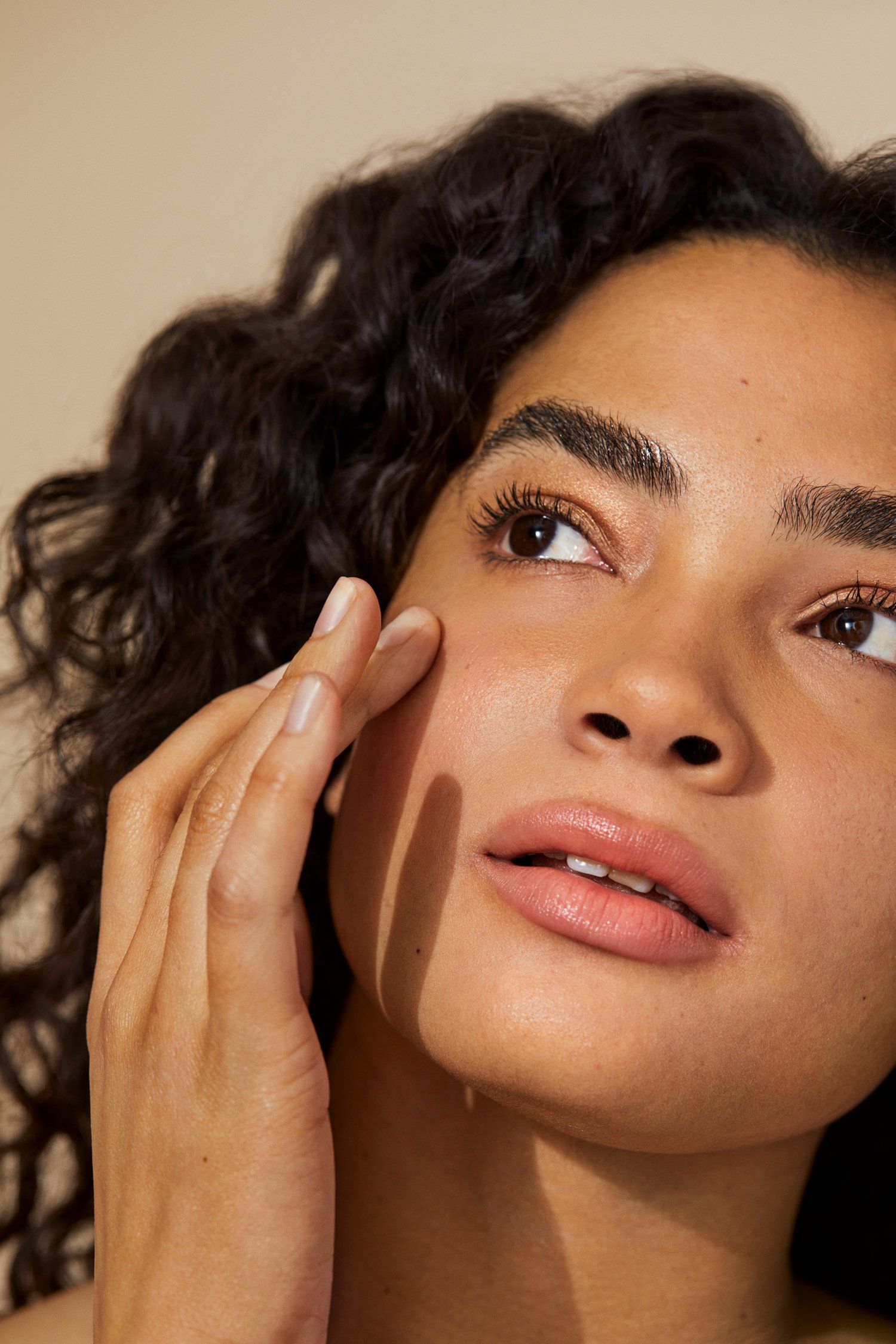You once thought that UVA/UVB from the sun and the environment largely impacted skin health, but there’s another source that’s affecting our skin: our indoor light and screen time, things we are constantly exposed to. Over the last decade, a lot of evidence shows the harmful effects of blue light (HEV) emitted by TV screens, computers, and other digital devices, and the effects cause premature skin aging.
What Is Blue Light?
High-energy visible (HEV) light or blue light is a high-frequency, short-wave light in the violet/blue band with wavelengths and It accounts for 50 percent of the sunlight spectrum and is the only part of light that is visible to the naked eye. The majority of our exposure to blue light is caused by the sun, but it’s also emitted by devices like smartphones, tablets, and televisions along with fluorescent and LED bulbs from indoor lighting. Natural exposure to blue light (from sunlight) during the day is important for our circadian rhythm as it tells our body that it is time to ‘wake up’ by stimulating alertness, improve memory, and even elevating mood. At night, however, staring at your laptop or other devices before bedtime will disrupt this natural and essential rhythm, making it difficult to relax your overall system, affecting your sleep.
How Does Blue Light Damage Skin?
More data about the harmful effects of blue light are starting to emerge in medical literature. For example, one such study conducted in 2017 shows that—like ultraviolet rays—blue light contributes to the formation of free radicals and can “induce oxidative stress in live skin.” These free radicals then lead to a break down of collagen and elastin in the skin and delay skin recovery in general. Research has also shown that blue light exposure can cause more hyperpigmentation than UVB rays which we already know causes skin darkening/hyperpigmentation/uneven skin tone.
Does Blue Light From Digital Devices Cause Wrinkles?
This is an important question, especially today. A 2018 study shows that even short-term exposure to blue light from electronic devices can “increase the generation of reactive oxygen species” as the skin is a primary target of oxidative stress. The study did not go onto correlate this directly to wrinkle formation; however, it does prove that blue light behaves much the same way as UVA rays (which we know does cause wrinkles). Additionally, it is important to remember that staying on your phone or any device late into the night will still have a negative impact on your overall eye and body health. It confuses your body and affects sleep health.
How to Protect Skin from Blue Light Damage
Reducing your exposure to blue light is the easiest way to spare your skin (and body) from unwanted side effects. Here are some really helpful tips:
- Install covers that block the blue light from smartphones, tablets, and computers
- Enable the “night mode” setting on your digital devices permanently—this significantly reduces the blue light in favor of harmless yellow light
- Check to see if your skincare provides HEV protection- Many think that the average sunblock will protect against HEV light, but this is not true. Skincare products need to specifically block this part of the UV spectrum and most on the market provide protection against UVA and B rays
What Skin Care Products Protect Against Blue Light?
Skin by Dr. Sethi has three products that specifically provide superior protection against blue light.
- Advanced Repair Sun Block delivers superior protection against UVA, UVB and blue light with a high dose Titanium and Zinc Oxide formula.
- HA Firm+ Boost Serum is a 400% hyaluronic acid formula with the antioxidant Lipochroman to protect against blue light.
- Intensive Repair Eye Gel includes blue light protection along with peptides to tighten and the delicate skin around the eyes.



